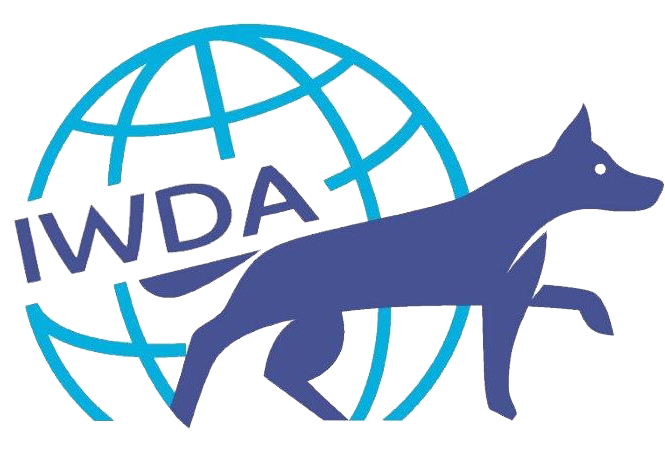By Jed Weisberger
IWDBA Communications
IWDBA Member Dr. Meghan Ramos, a VMD, a resident Sports Medicine and Rehabilitation resident at the Penn Vet Working Dog Center in Philadelphia, was one of the popular speakers at last October’s IWDC 2021.
Ramos, who received her VMD in 2018, centered her IWDC presentation on the Penn WDC’s Working Dog “Fit to Work” program and its foundational fitness development and training facets.
“That is what I really enjoy doing,” said Ramos. “I aim, in both training the dogs and when they are working, to assure they are at the top of their games.”
She began her career with the WDC in 2012, working with several odor detection research studies as a research coordinator who was integral in the training and protocol development of the WDC’s medical detection program, including agility, obedience, and apprehension. Ramos fostered and trained a WDC graduate, Mizu, a German Shepherd, who is now a narcotics detection canine officer with the Pennsylvania Attorney General’s Office.
Now, alongside Dr. Cynthia Otto, Executive Director of the Penn Vet Working Dogs Center and Canine Sports Medicine, Dr. Ramos, according to a WDC release, “is dedicated to advancing the field of canine sports medicine via scientifically valid clinical trials and advanced diagnostics that will benefit not only elite working dogs but will impact the canine community at large.”
“When an athlete is injured, the goal of sports medicine is to help that person return to form and resume competition,” said Ramos. “The goal is the same for a working dog that is hurt. We want to return the dog to its ability to do its work at the level it did before the injury.”
The WDC canine sports medicine and rehabilitation residency program is governed by the American College of Veterinary Sports Medicine and Rehabilitation (ACVSMR). Similar to human and equine sports medicine, the topic of canine sports medicine as both a preventative and performance specialty has become more of a focal point recently.
Dogs, as humans, in aiming to return to top shape and level of work that is expected, work with a phased recovery plan, featuring physical fitness elements to ascertain whether a dog can safely return to work after injury. Also, as with humans, it works with the WDC’s Fit to Work programs and injury prevention.
“These dogs are valuable, both in their work and to the community in general,’’ said Ramos. “To help an injured working dog recover is very important to me as our program develops. I’m excited about what we are doing.
She began her three-year residency in July 2020, sponsored by Dechra Veterinary Products, and is pursuing a National Institutes of Health funded Master in Translational Research through the Institute for Translational Medicine and Therapeutics at the University of Pennsylvania Perelman School of Medicine.
This story is part of a bi-monthly series that will appear on the IWDBA website and sent to subscribers spotlighting the work of IWDBA members. If you are an IWDBA member and wish to be featured, contact jed.weisberger@iwdba.org
